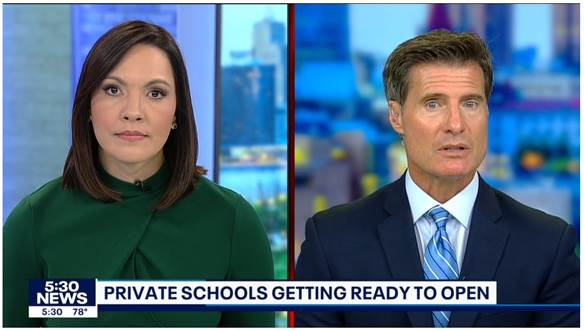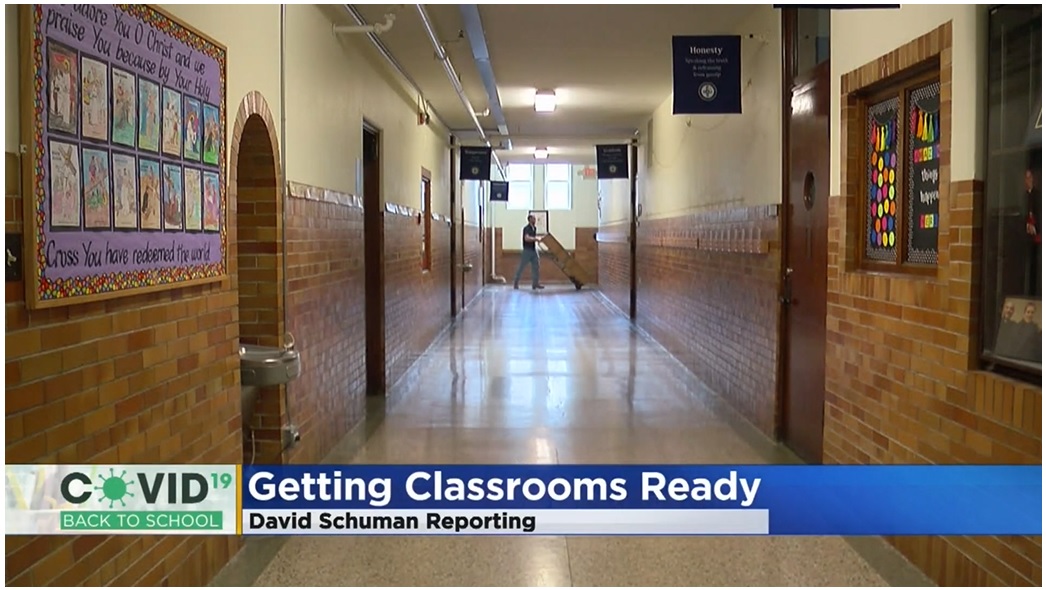It’s a complaint I’ve heard often, and (I’ll confess) occasionally spoken myself: “What use is learning math? It’s not like it’s going to help me in life!”
In eighth grade geometry, the complaints seemed legitimate. Why was I calculating the angles of triangle XYZ? I didn’t know what career I was going to pursue, but—at least for me—it would not be math. I barely appreciated the subject, and I vividly remember my relief upon finishing my final math requirement midway through high school.
Why then, would I study geometry? Or—for that matter—why pursue any field not directly related to my future career? If we’re honest, few jobs require a detailed knowledge of participles, and slitting open a frog’s gut isn’t something we’d slap on our résumés. The information is useless—right?
What Education Isn’t
Up until high school, I’d viewed education like a porcelain piggy bank. The subjects I studied—history, English, science, and so forth—gave me coins to slip into my bank. Henry VIII died in 1547? There’s a penny for my bank. Adjectives modify a noun, adjective, or another adverb? Slip in a shiny dime. Mitochondria are the powerhouses of the cell? Hand me a quarter, please.
In this way, I thought education was about accumulating facts: We need to learn information required from each subject, and—once we’ve dropped these facts in the mental piggy bank—our education would be complete.
Naturally, this view of education left me feeling dissatisfied with subjects I didn’t see as “relevant” or “useful.” After all, Henry VIII wouldn’t help me learn to socialize better, and the function of mitochondria didn’t strengthen my planned career.
What Education Is
As I returned to homeschool for my high school studies, I realized that education was more than just a storehouse of facts; rather, it was about forming the mind.
To illustrate this, imagine a piggy bank that—every time it received a coin—morphed into a different shape. Drop in a dime? Your pig might change into a cow. Add a quarter? You now own a porcelain elephant! The coins, rather than just slipping into the piggy bank and remaining distinct from it, change the fundamental nature of that piggy bank.
In the same way, education isn’t only about compiling various bits of information. Yes, you are slipping coins into your mental “piggy bank,” but those coins change the very nature of your mind.
The Usefulness of Math
Take math, for example. In a previous article for Intellectual Takeout, Devin Foley wrote this in defense of math:
Socrates asserts that learning math—pure, unapplied math—forms our minds. It trains us to consider things that we can’t see but always exist without changing. … When we learn math, we’re using our mind alone, not our senses. Socrates calls it a study that ‘by nature leads to intellection.’
…We don’t learn math solely because it is useful or relevant. We learn math because it teaches us to think completely apart from what we sense. We learn math because it is one of the few things that never changes, no matter what happens around us. Math is unique: physics, literature, chemistry, languages, and, every other subject we learn in school comes from experience, and only math stands totally apart from that.
When we learn math, we are learning to think—to see the world with our minds and not only our senses. And isn’t this why children go to school in the first place?
Of course, this doesn’t mean that math, or any other seemingly “useless” subject, is good only for its ability to structure the mind. Math can be used practically—in calculating discounts, doubling recipes, or budgeting. But when “practical” applications disappear, we can rest confident in the knowledge that math—and other subjects like it—structure our minds to think cogently about the world around us.
Embracing the “Impractical”
I’m currently in school for English and philosophy—two seemingly impractical degrees. It’s not likely that I’ll be diagramming sentences in my future career, and the potential existence of hypothetical worlds won’t make it into my conversations anytime soon. By all appearances, I’ve wasted hundreds of hours reading great literature and studying ancient thinkers.
Yet when I’m approached by people confused about my choice of majors, I always say the same thing: “These subjects will help me wherever I go in life. I’m learning to think well, and I’m learning to communicate clearly.”
In the words of Martin Luther King Jr.:
Education must enable one to sift and weigh evidence, to discern the true from the false, the real from the unreal, and the facts from the fiction.
The function of education, therefore, is to teach one to think intensively and to think critically.
The key to education is the process: our learned ability to think clearly, analytically, and systematically about the world. This ability will serve us well—even when our knowledge of facts fails us.
—
This article is republished from Intellectual Takeout under a creative commons license.
Image Credit: DémarchesAdministratives.fr, CC BY-SA 4.0












![[downloaded during free trial]](https://oakmn.org/wp-content/uploads/2025/11/iStock-1430368205-120x86.jpg)
